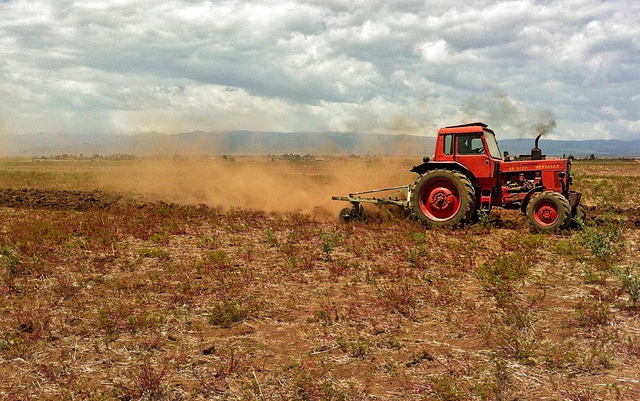African agriculture has shown impressive growth during the past couple of decades, but for the most part it was just to catch up to the productivity levels seen in the early 1960s, before the ensuing decades-long period of under-investment and decline. Crop yields in African countries are still a fraction of what is achieved in other regions. African countries urgently need to improve their capacity to develop, adopt and disseminate technologies to help their agricultural sector to achieve its potential.
Given that context, the current debate around genetically modified organisms (GMOs) and related technologies is being couched in too narrow a form to ever lead to a win for Africa. The question “Does Africa allow GMO products or not?” is too passive, leaving African farmers and scientists out of the action. Rather than asking whether Africa should or should not accept innovations generated by others who have invested in mastering the technologies of tomorrow, one should rather be asking whether African countries have the expertise, laboratories, and institutional—legal and regulatory—infrastructure to master future agricultural technologies. These technologies include not only GMOs but also other forms of biotechnology, as well as innovations in other areas such as digital farming. This debate, on how Africa can put in place the scientific infrastructure to master the above technologies and harness them for progress, would be more fertile, more conducive to opportunities for learning, partnership and exchange.
Engaging in a more productive debate is important for two reasons. First, the face of agriculture in the next few decades will be completely transformed by innovations in information and gene technologies. If Africa stays out of that broader march towards future technologies, no amount of natural resources will help it compete successfully in global or even domestic markets.
Second, uncompetitive technology systems would seriously limit Africa’s capacity to help meet future global food demand, leading to a world with higher food prices and skyrocketing net import demand by African countries. Africa would be penalized twice. Not only would it fail to raise exports, capture a piece of global demand on a planet with 9 billion people, and earn needed foreign exchange—it would also have to import larger quantities at higher prices, depleting its scarce foreign reserves.
The IFPRI-led Agricultural Science and Technology Indicators (ASTI) initiative tracks agricultural research capacity in Africa and other regions. In a recent ASTI book, Agricultural Research in Africa: Investing in Future Harvests, Johannes Roseboom and Kathleen Flaherty discuss the challenges facing African agricultural research systems. These include national policies which place too little emphasis on agricultural research and development; weak organization and management of research institutions; inadequate financial, human and physical resources; and poor coordination between research institutions across and within countries, and between research and extension. Many African countries have understaffed research institutes where poorly paid researchers struggle to work with inadequate equipment and resources and are disconnected from other organizations performing similar work and from end users of their technologies.
Some may say that it is misplaced to talk about cutting-edge technologies while countries are failing to use existing technologies and bridge yield gaps. Of course we should not ignore existing technologies, but we should also look for opportunities to solve today’s struggles with new technologies. The opportunities for innovation and technology adoption are multifaceted and non-linear, and thus do not necessarily have to be sequential. Biotechnology is bringing together biology, chemistry, and physics in a way that does not rely on today’s technologies. Similarly, there are new and potentially significant opportunities for robotic farming afforded by advances in information technologies. While Africa has major infrastructure gaps in many areas, it is the most competitive in the telecommunications sector, and hence can successfully invest in the development of adapted digital farming technologies, including 3-D technologies.
Aside from a few countries, there is a dearth of initiatives among governments and the private sector to invest heavily in raising Africa’s capacity to master future technologies. The successes of some African countries, such as South Africa and Kenya, in developing state-of-the-art technologies indicate that the barriers to making progress are less formidable than one might think. While we are wrestling with today’s challenges, we need to also think about tomorrow’s battles and embrace the technologies to win them.
Ousmane Badiane is IFPRI’s Africa Director. This post first appeared on the Malabo Montpellier Panel blog.







